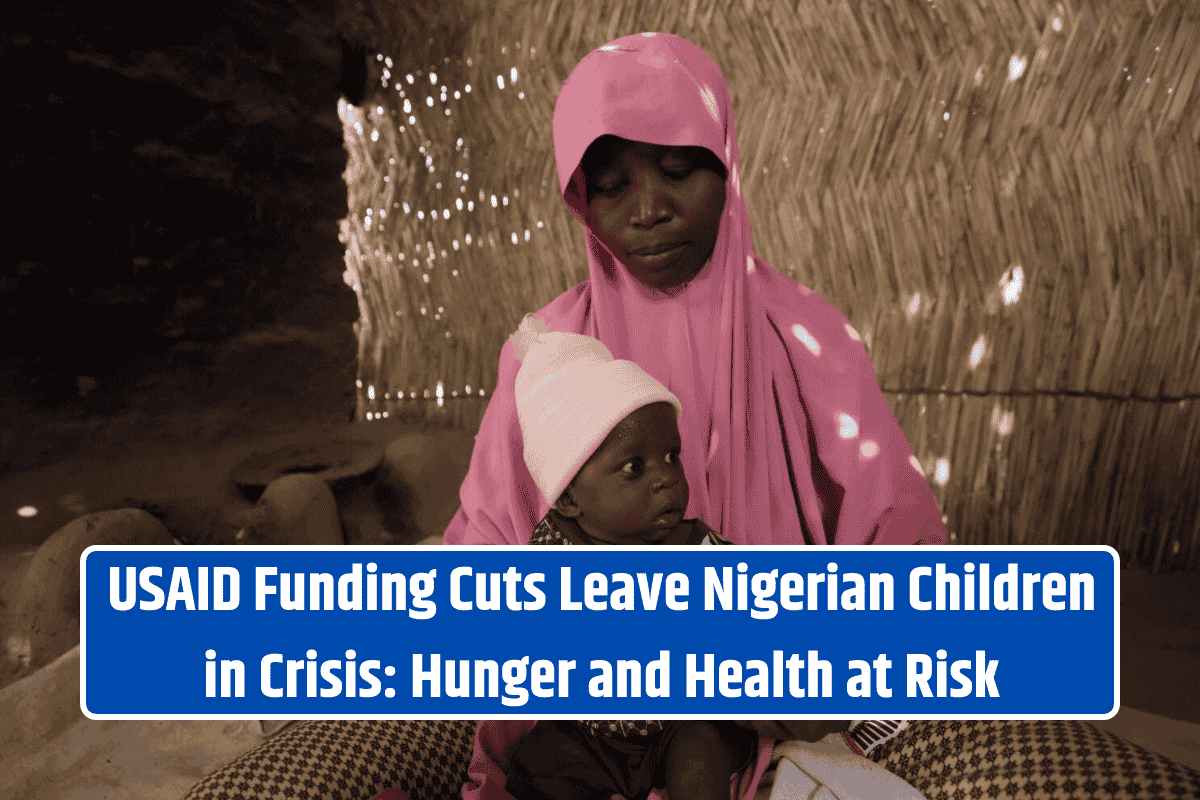Across Nigeria’s conflict-hit northeast, thousands of displaced families are now struggling more than ever. Vital food and health services are disappearing because of major cuts in international aid. In the town of Dikwa, one woman’s story highlights just how serious things have become.
Yagana Bulama, once a farmer, is now a mother living in crisis. She has lost several children to hunger, and her recent newborn twins were undernourished from birth. While one twin survived, the other died shortly after aid programs were cut. Sadly, her story is not unique. It is part of a wider humanitarian emergency spreading across Nigeria and other parts of Africa and Asia.
Why Is This Happening?
In early 2024, the United States cut over 90% of USAID foreign aid contracts. This meant an immediate stop to funding for several life-saving programs, especially those helping children suffering from severe malnutrition. Organizations like Mercy Corps, Helen Keller International, and Intersos had to end or reduce their services.
USAID previously provided about 50% of global therapeutic food supplies—calorie-rich pastes used to treat children with acute malnutrition. Now, thousands of children in Nigeria, Bangladesh, Nepal, and beyond may not receive any help.
The Situation in Dikwa
In Dikwa, about 400,000 people—almost the entire population—rely on humanitarian support. The military has restricted movement, so farming is nearly impossible. That leaves families like Bulama’s with no way to feed themselves.
One remaining clinic supported by UNICEF still helps some children, including Bulama’s surviving infant. But it is overwhelmed and cannot handle the growing number of patients. Another organization, Intersos, operates the only facility for children needing in-patient care for malnutrition in Dikwa. They now handle around 10 critical cases a day, but with less staff and fewer supplies.
What Has Been Lost?
Before the funding cuts, Mercy Corps helped many children through feeding programs. Now, those programs are gone. Many mothers, like Bulama, have seen their children suffer or even die because of this. Intersos had to reduce its staff in Dikwa from 30 to 11, and its only funding—through a smaller Nigerian Humanitarian Fund—is expected to run out by June 2025.
In Maiduguri, the capital of Borno state, the situation is just as bad. Clinics are losing staff and can’t admit all the children who need help. The number of malnourished children continues to grow.
The Impact Beyond Health
This crisis is not just about food and medicine. The cuts have also affected shelters, housing, and relocation support. At a reception center run by the International Organization for Migration, displaced families are stuck, unable to move to safer homes or start a new life.
U.N. officials have warned that lack of support may push vulnerable people to join violent groups like Boko Haram, simply for survival.
A Global Crisis, Not Just Nigeria
The problem is worldwide. According to Mercy Corps, 40 out of 62 U.S.-funded programs across countries like Ethiopia, Sudan, Afghanistan, Kenya, Gaza, and others have been closed. In Mozambique, over a million people displaced by extremist violence now face health system failures and lack of basic support.
Experts warn that without fresh funding, more lives will be lost—not just from hunger, but from the collapse of healthcare systems, especially in areas affected by HIV/AIDS and other serious diseases.
The humanitarian crisis in Nigeria’s northeast is deepening fast due to the massive cut in USAID funding. Families who once depended on food and healthcare aid are now left with nothing. Children are dying from hunger, shelters are not being built, and aid workers are being laid off. Unless new funding is found soon, thousands more could suffer and die—not just in Nigeria, but across several countries affected by similar cuts. This is no longer a local issue; it is a global emergency.











